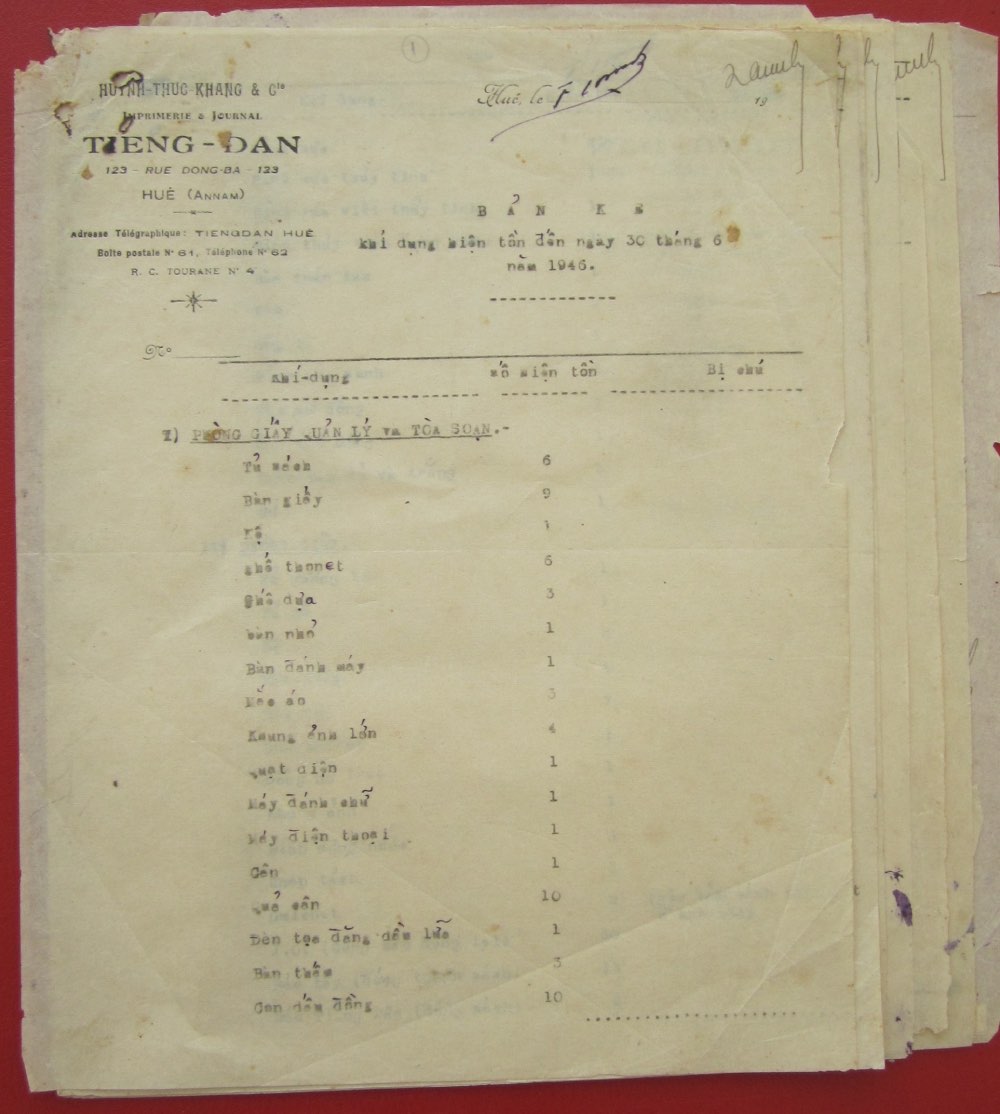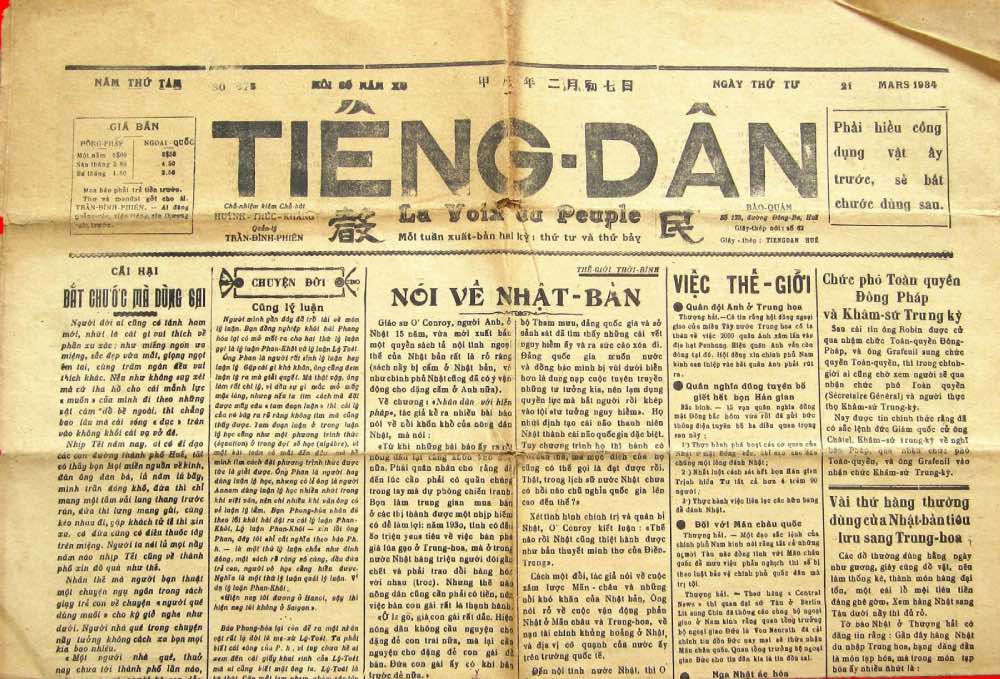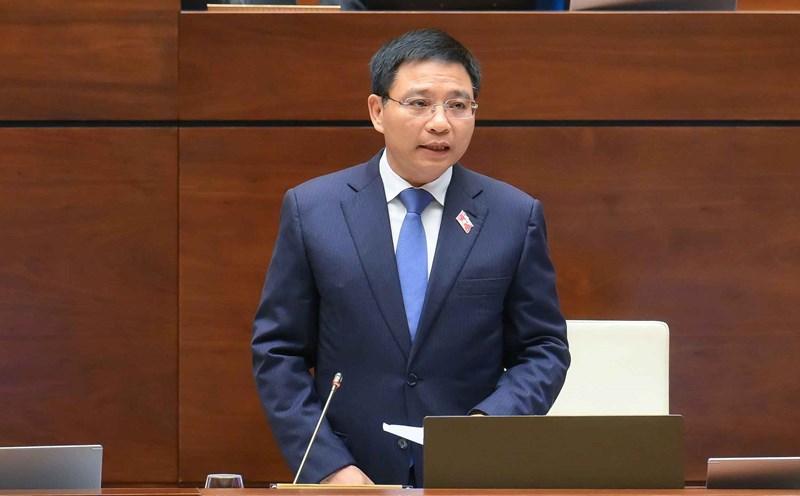Opening up popularity with national press
It is no coincidence that Xue Dan was born in Hue - a land that was not only the political center of the Nguyen Dynasty, but also a place that gathered the intellectual quintessence, patriotic movement and strong renovation ideology from the end of the 19th century. This is where Phan Boi Chau, Phan Chau Trinh, Tran Cao Van... used to work and left a deep impression.
On August 10, 1927, the first issue of the Voice of Vietnam was issued, establishing a clear declaration: Writing for the people, declaring the people's knowledge, and awakening the nation. The newspaper uses the national language, popularizing knowledge to the general public, with moderate writing style but easy to understand, familiar but still profound. Through each release period, The Voice became a broken heart class for critical thinking and mass enlightenment.

The newspaper clearly reflects the goal: Not shouting out loudly, not taking extreme measures, but quietly sowing the seeds of people's rights and popularity through each luan, comment and news of life. That is the spirit of responsible journalism and serving progress.
The strange thing is that a newspaper like Tieng Dan could have existed for nearly 16 years (1927-1943) under the poor censorship regime of French colonialism. While many patriotic newspapers were banned after a few months, Tieng Dan still stood firm, reaching 1,766 issues. It is not because of the commitment, but because of the courage, intelligence and journalism art that is both sharp and wise.
Mr. Huynh was summoned, examined many times, and even forced to submit the paper to the censorship agency before being printed. But he was determined: "If you don't have the right to say everything you want to say, then at least keep the right not to say what people force you to say". That is the indomitable spirit, not resignation.
Financial initiative is the key. Mr. Huynh established his own company to publish newspapers, refusing all political sponsorship. Thanks to that, the Vietnamese people are not dominated by any government or power. The attraction of public and transparent funds, attracting a large number of shareholders across the country, has created a newspaper that is both financially independent and self-sufficient in content.
Journalists do not compromise
As a doctor of Confucian studies, a member of the Duy Tan movement, a time expelled to Con Dao, and a former Director of the Trung Ky Institute of Ethnology, Mr. Huynh chose journalism as the path to enlightenment, after realizing that all political forums under the French colonial period were just forms. She refused professional benefits and withdrew from the House of Representatives in 1928 to focus on journalism.
Initially, Mr. Huynh intended to name the newspaper Trung Thanh, but after asking Mr. Phan Boi Chau, Mr. Huynh changed the newspaper's name to Tieng Dan - a simple name but full of aspirations, the honest voice of the people.

The newspaper is headquartered at 123 Dong Ba Street, Hue (now 193 Huynh Thuc Khang). With a large framework, diverse content including: commentary, political theory, poetry, geography, translation, educational novels... The Dan language is not only a political newspaper but also a cultural forum. Each newspaper page has a famous East-West language, as a message about ideology and ethics.
At that time, Tieng Dan Newspaper attracted many large thinkers such as Dao Duy Anh, Hai Trieu, Vo Nguyen Giap, Nguyen Chi Dieu... creating a vibrant academic forum right in the hearts of the colonial regime. Even people like Nguyen Van Vinh, Phan Khoi, Nguyen An Ninh in the three regions are more or less affected by the Dan language.
Not only a newspaper for intellectuals, Xiao Dan is also reachable by the masses thanks to its simple, easy-to-understand language and content associated with real life. newspapers write about workers, farmers, social injustice, abuse of power, hunger, insensitivity of the government... That is what makes the newspaper popular and become the voice of the people oppressed.
From 1936 to 1939, The Danish language issued three numbers per week, gradually increasing its influence. But with the increasingly clear spirit of resistance, the colonial government could not accept it. On April 21, 4, 4, the whole government of Indochina issued a decision to establish Tieng Dan communal house.
Although it only existed until 2006, 16 years of living under pressure were enough for Xuan Dan to become an icon of responsible patriotic journalism. No shouting of violence, no wearing of slogans, but sowing seeds of long-lasting and profound awareness. In the context of the Vietnamese voice being stifled under the colonial rule, Tieng Dan has affirmed its position as a song of the people, the people's rights, and the people's spirit.
More than 80 years since The Voice was banned, the spirit left by the newspaper is still a measure of the value of revolutionary journalism: Honest, critical, committed and uncompromising. In an era where the press faces countless challenges - from social networks, fake news to market pressure, the legacy of Mr. Huynh and Mr. Tieng Dan is a reminder of professional courage and responsibility to society.
In the memorial library of the Vietnam Revolutionary Press, the People's quite is a special chapter. It is not only the first newspaper in the Central region, but also a vivid testament to the spirit of opening up, committing and being independent in journalism. It launched a flow of critical press and that flow, to this day, still flows strongly in the hearts of the nation.











